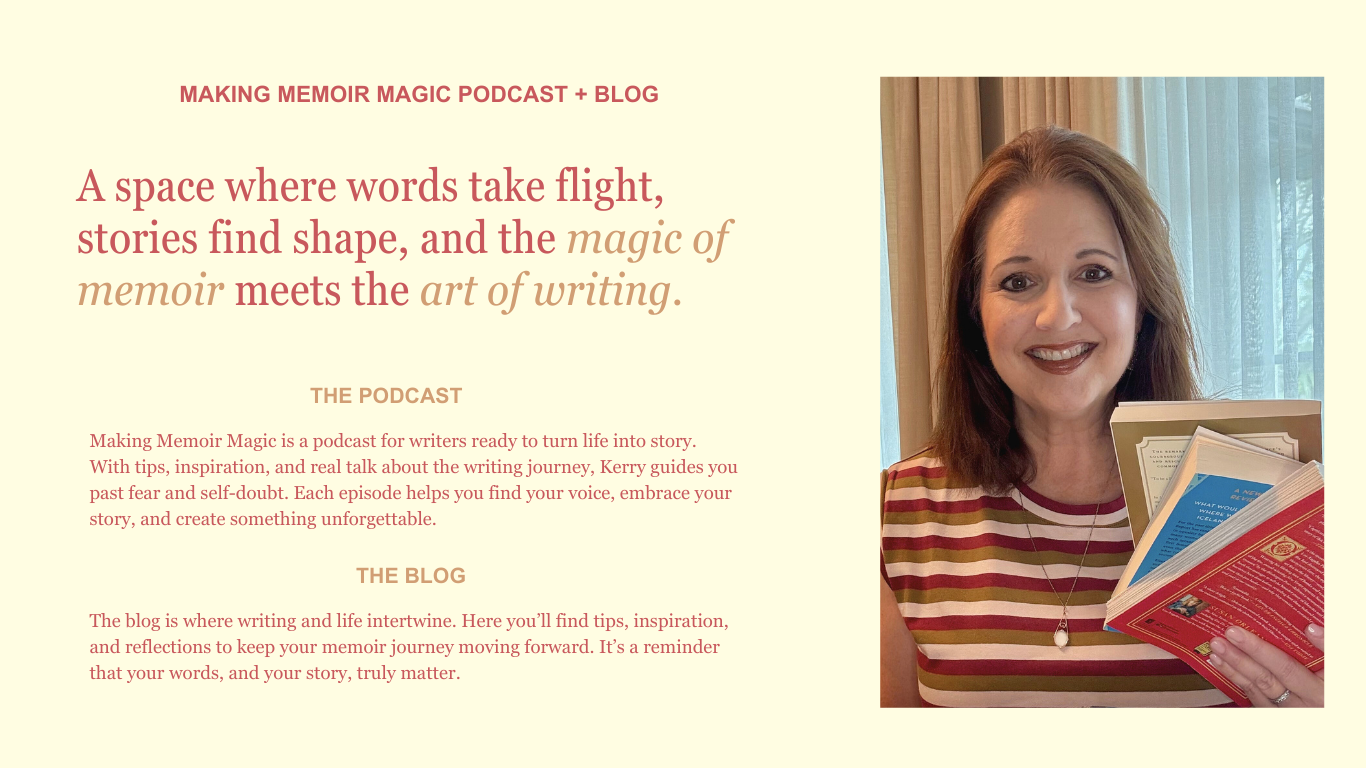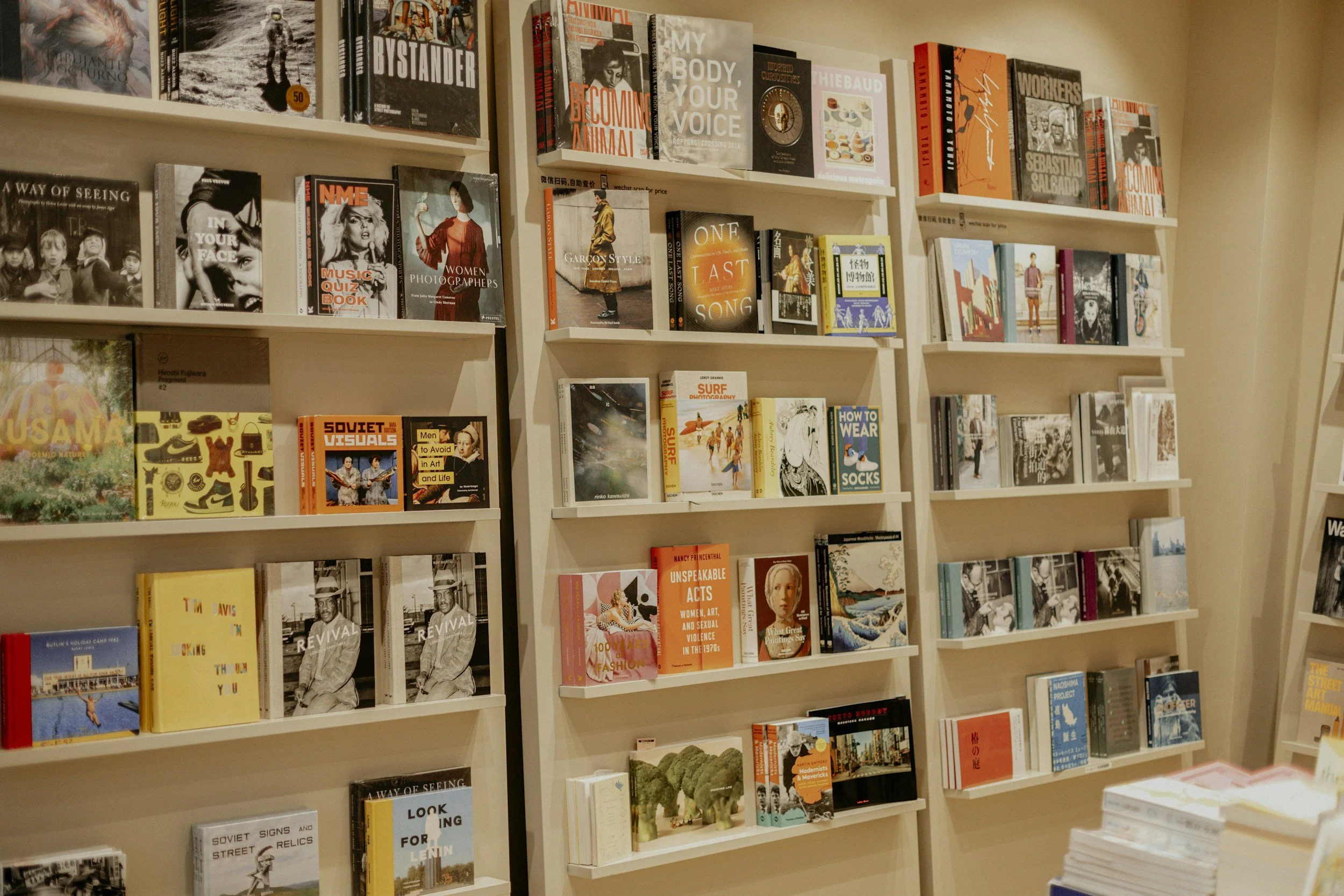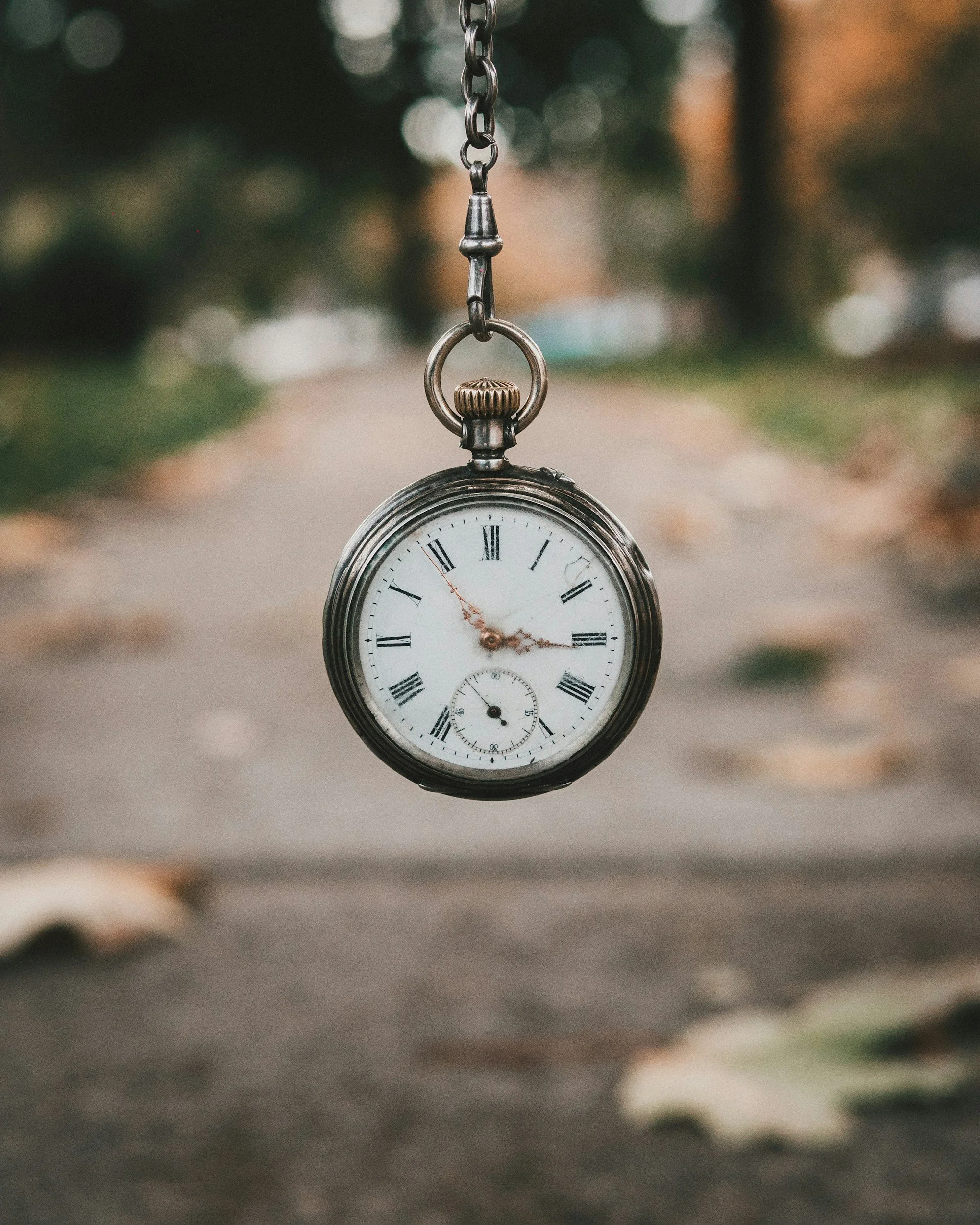Deciding to tell you story through memoir doesn’t mean that you’re ignoring what’s happening in the world. So much of what we see on the news begs us to pause, grieve, and even take action. That’s important, and however you move through these trying times is a personal choice. But, if you feel called to do so, you should always choose writing.
Read MoreYou are not stealing time from your kids by honoring your story. And you are not failing as a writer because your life is full. You are modeling something powerful: that creative dreams matter alongside responsibility — not after it.
Read MorePeople don’t avoid writing their memoir because they can’t write. They avoid it because they’re afraid of what writing will reveal. This is one of the most common fears in memoir writing. You worry your story is too ordinary. That it won’t resonate.
Read MoreWhat keeps most people stuck isn’t a lack of talent or discipline. It’s the fear of claiming meaning in their own life. Many of us were taught to minimize, to move on quickly, to be grateful and quiet. That voice sounds reasonable, but it’s lying.
When stories go unwritten, they don’t disappear. They show up as restlessness. Self-doubt. The feeling that something important remains unfinished.
Read MoreWhen you have a solid structure in place, you can write scenes without stopping to second-guess, leave placeholders instead of spiraling, and keep forward motion even on messy days
Read MoreBut here’s the truth I learned while writing my memoir, Accidental First Lady: You don’t need a clean slate to begin. You don’t need hours. You don’t need the perfect outline, the perfect desk, or the perfect plan. You just need movement. Even tiny movement. Because small steps now become massive momentum later.
Read MoreReaders don’t want flawless. They want real. They want the version of you who doubted, learned, tried again, and kept going even when it wasn’t pretty.
Read MoreA common mistake authors make is waiting until the book is printed to think about marketing. But effective author marketing starts long before publication day.
Read MoreThe problem isn’t a lack of discipline. It’s your container. If your writing routine can’t bend with your schedule. It’ll break when life demands more of you. Instead of dominating your day, writing needs a sacred and sustainable space.
Read MoreForget chapters, timelines, or whether it “fits.” Just write that one moment like you’re watching it unfold on film. Think of your memoir as a conversation with one person. What do you want him or her to know. Envision your extended arm, offering your hand to the reader, saying, “Come with me. I have something to share with you, and I’m going to show you what it meant to me and why it matters to you.”
Read MoreWhen you show up, even for five minutes, something profound happens: you start to trust yourself. You stop being the person who wants to write and become the person who does write.
That’s where confidence begins, not after you publish, but in the quiet rhythm of keeping your promise to yourself.
Read MoreWhile I wrote those early chapters, I knew I still hadn’t found my starting point, but I kept writing. Momentum increased. I was getting words on the page. My early manuscript was taking shape. I knew the perfect, or at least most appropriate beginning, would reveal itself to me.
Soon, my chapters looked less like the resume I’d started with (think boring lists of events I’d endured) and more like a revelation. I was still teaching those political spouses, my future readers, but my stories were becoming revelations that other readers would also relate to.
Read MoreMemoir isn’t a straight line. It’s a spiral. We move forward, circle back, dive deeper, rise again. Start where the ground shook. Then let the echoes guide your structure.
Read MoreMany writers think they have to get the opening exactly right before they can move forward. But here’s the truth: you’ll likely revise your opening after the rest of your story takes shape. The important thing is to start . Choose one powerful doorway into your story and walk through it.
Read MoreAt first, I thought, Who would care about my story? But here’s what surprised me: people did. My book found its way into the hands of men and women, students and retirees, even other politicians. Readers connected not because my life was glamorous, but because I was honest about my journey. And four years later, I’m still selling books and giving interviews.
Read MoreFor almost 33 years, I’ve shared my life with a man who speaks faith in a language different from my own. He is Jewish. I am Catholic. Our whirlwind courtship after meeting at a beach bar had us talking about marriage within 6 months of dating. We quickly acknowledged our religious differences, and we committed to forging a path toward understand and respect of each other’s religions.
Read MoreThe power of food to transport you to a place and time is a catalyst for memoir. Food unleashes our senses so that we can be active characters in the story of life. Just as we invite others to our tables, sharing our stories through memoir invites our readers into the world we inhabit, navigate, even survive.
Read MoreWriting your memoir can be one of the most generous acts of your life. Discover why personal storytelling matters and 10 tips to write generously.
Read MoreMost aspiring memoirists freeze at the starting line. Not because they don’t care, but because all they can see is the end. A finished book. A publishing deal. A shelf at Barnes & Noble. And that vision, while beautiful, is overwhelming when you’re staring at a blank page between school pickups and staff meetings.
Read MoreA well-edited memoir doesn’t erase your voice. It amplifies it. It’s not about cutting your truth. It’s about cutting through the noise so your truth rings louder and clearer.
Editing helps you unearth the real message behind your memories. It helps you focus your story, deepen your themes, and make choices about what to include and what to let go.
Read More




















